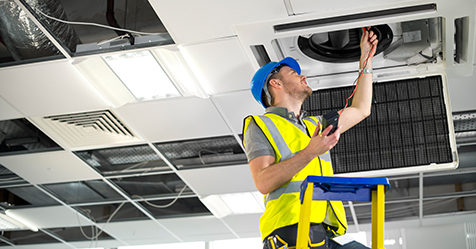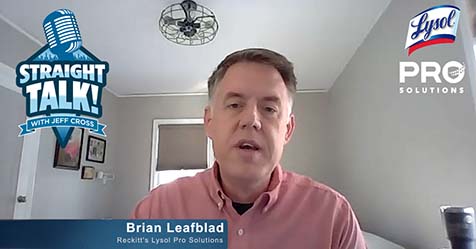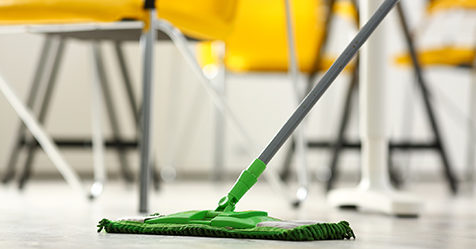K-12 schools play a vital role in our society. From providing jobs to educating the nation’s youth, it would be difficult for society to operate without them. Due to their importance, the environment within school facilities should be a top priority for key decision-makers. That’s why indoor environmental quality (IEQ), defined as the quality of a building’s environment related to the health of occupants within it, is a priority.
IEQ can affect students and faculty in multiple ways. From a mental aspect, it can help determine a person’s mood and ability to learn. Excessive interior noise from HVAC units or other machinery is detrimental to IEQ.
Another major aspect of IEQ is indoor air quality (IAQ). Students and faculty need clean, comfortable air to breathe. From humidity within the air to the number of pathogens allowed to pass through the HVAC system, IAQ is important in providing an atmosphere that is comfortable to work and learn in.
For facility managers, developing a strategy to ensure positive IEQ is key to creating an environment that is satisfying for students and faculty alike.
Breathe in clean air, not germs
Airborne pathogens that cause illnesses, such as the flu or COVID-19, can easily spread if a facility isn’t properly suited with solutions that help minimize these germ particulates. In addition, air can also be uncomfortable if the humidity is too high or too low. Mechanical HVAC systems are one of the best tools to create proper IAQ that will leave occupants breathing easier.
Facility managers should focus on three areas when creating optimal IAQ: controlled ventilation, dehumidification, and filtration. Installing an HVAC unit that allows controlled ventilation—or upgrading an existing system to allow ventilation control—will give facility managers the ability to determine how much fresh outdoor air will be introduced into a space. While allowing clean air into the building, the HVAC unit is also pushing poor, contaminated air outside.
Filtration plays a vital role in eliminating the number of particulates in the air. The American Society of Heating, Refrigerating and Air-Conditioning Engineers (ASHRAE) recommends the use of MERV 13 filtration for most applications, if compatible with the HVAC unit. The higher-graded MERV filters will help remove an increased number of pathogens in a space. For an added layer of defense, consider adding ultraviolet (UV) lights or needlepoint bipolar ionization solutions to HVAC units.
Controlling the humidity is also important. If the relative humidity levels are too high, the air will feel too stuffy. If the humidity levels are too low, the air will feel too dry. Both scenarios create an environment that is uncomfortable for occupants. Relative humidity can contribute to the growth of bacteria as well. Mechanical HVAC units can control humidity, keeping it at an optimal level. Relative humidity levels should stay between 40% and 60% to help guarantee satisfaction.
Listen to the sound of silence
While mechanical HVAC units can help improve IEQ inside a school facility, they can also act as a double-edged sword by creating excessive, loud noise. There are various reasons why facility managers should be concerned about noise levels inside the facility, but one of the most important is its effect on a student’s ability to learn. Imagine being a student sitting next to a loud in-room unit while trying to focus on a test.
Noise will affect a particular area in two ways: sound pressure and sound power. Sound pressure is the force of sound on a surface area and is predicated on the characteristics of the room. Sound power is the energy of sound per unit of time and is dependent on the sound source alone, meaning room construction and location of installation are less important. This illustrates that the HVAC machine plays just as much of a role in noise as the room it’s installed in.
Multiple upgrades can be introduced to an HVAC unit to decrease noise. For example, upgrading to an improved acoustic insulation with a barrier can help, and a redesigned acoustic plenum will improve noise reduction up to 7db. In addition to upgrades, consider HVAC units engineered specifically for efficiency and noise reduction.
Reap the benefits of improved IEQ
IEQ can have a positive effect on students, faculty, and staff in a K-12 school. For students, it can set the stage for an excellent learning experience. For faculty and staff, it can create an atmosphere that positively influences health and the enjoyment of the job. No one wants to be in a setting with poor IEQ that can create distracting noises or uncomfortable breathing environments.
Facility managers who emphasize IEQ help ensure their school buildings will provide an optimal learning and working environment for all its inhabitants.




